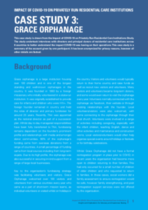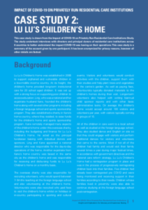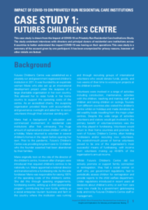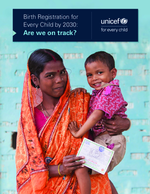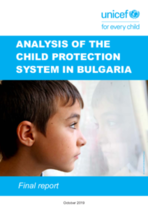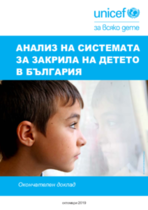Impact of COVID-19 on Privately Run Residential Care Institutions Case Study 3: Grace Orphanage
This case study is drawn from the Impact of COVID-19 on Privately Run Residential Care Institutions Study. It presents a summary of the account given by one participant.

